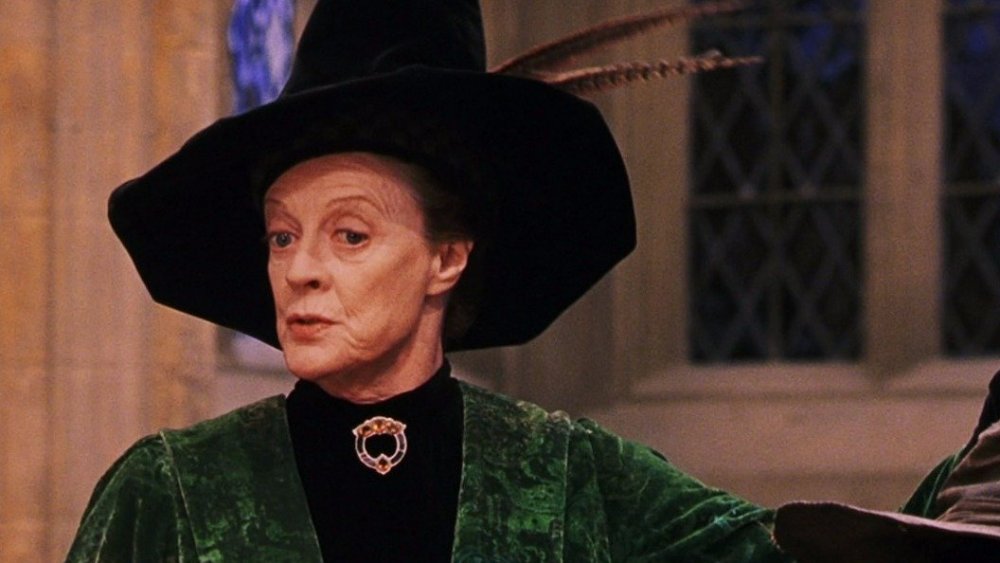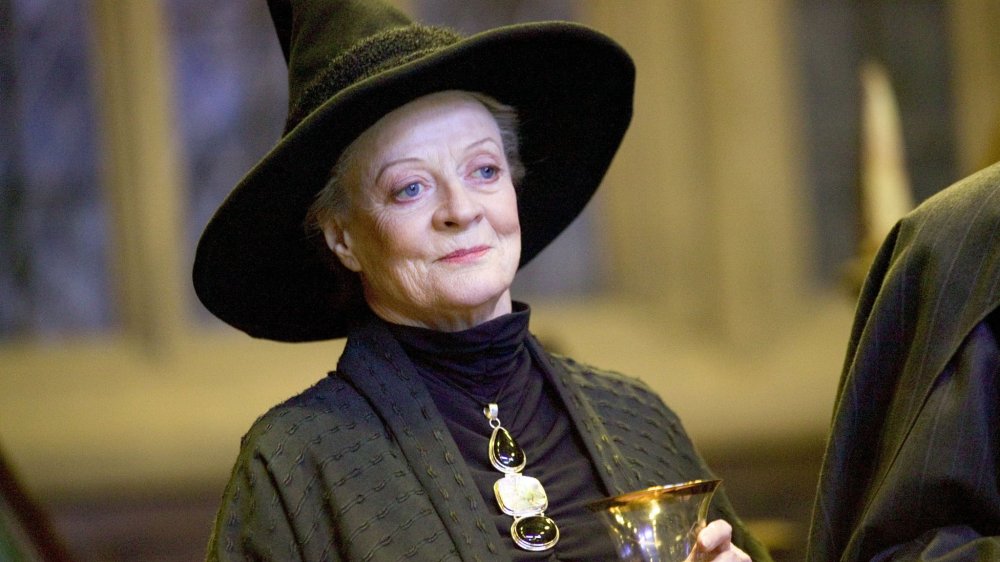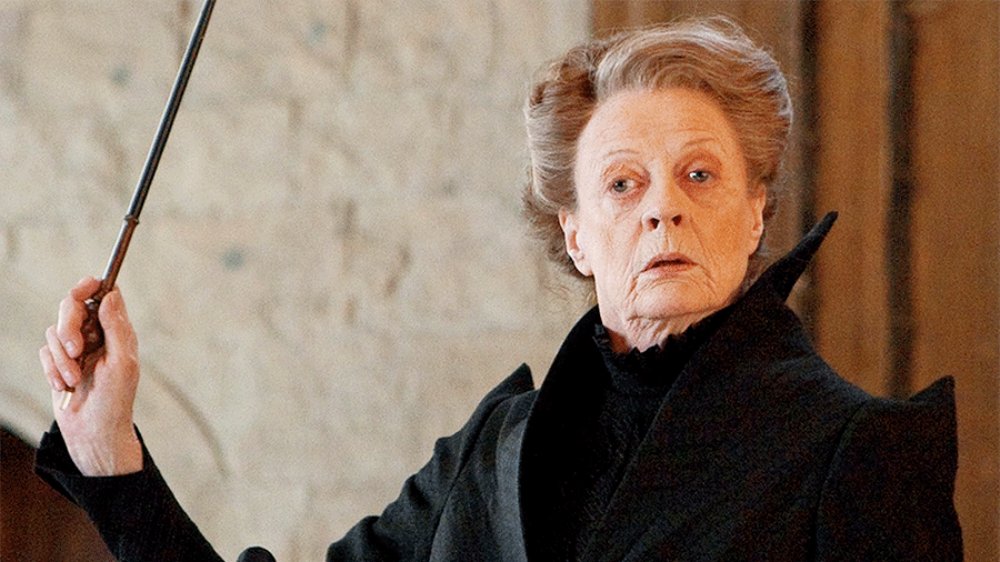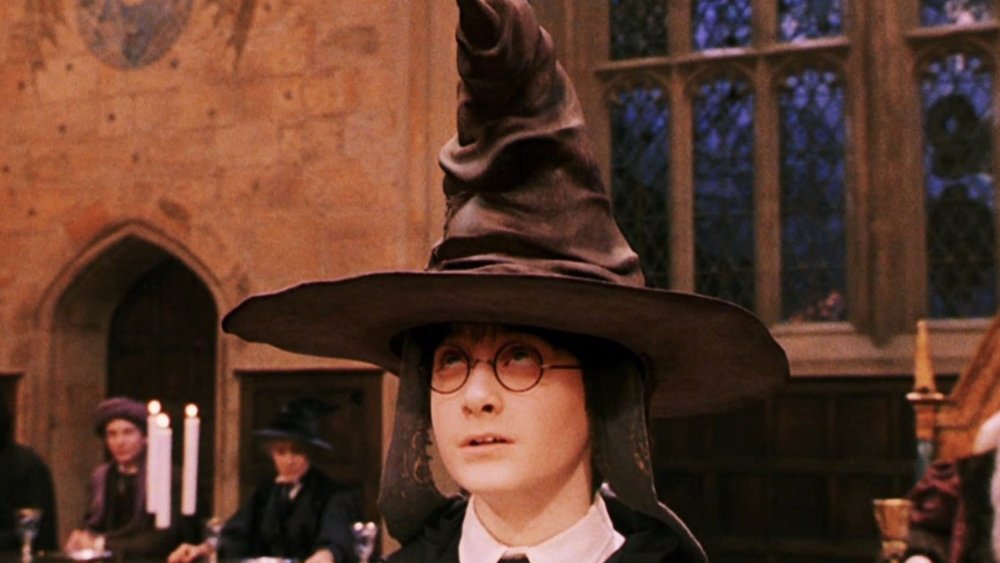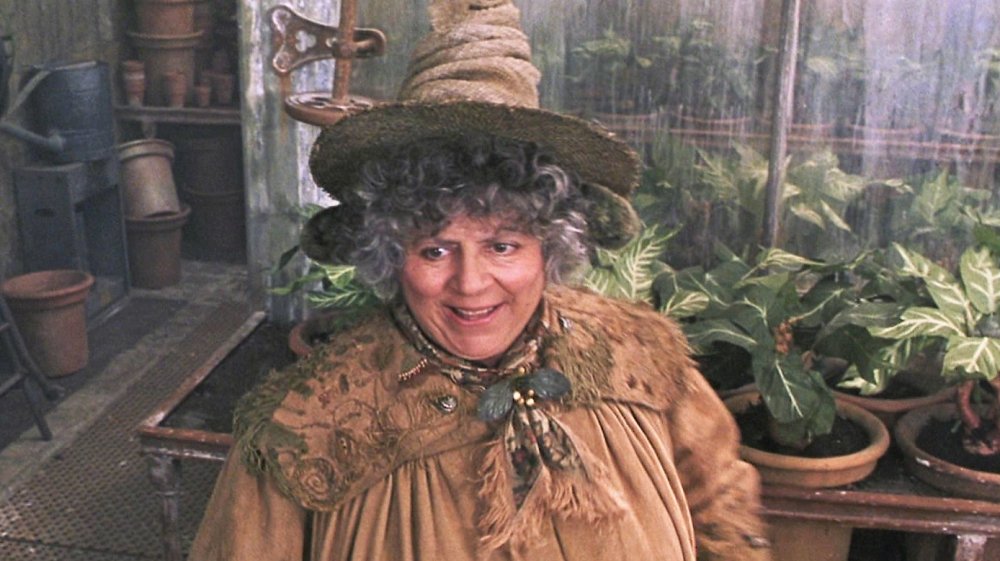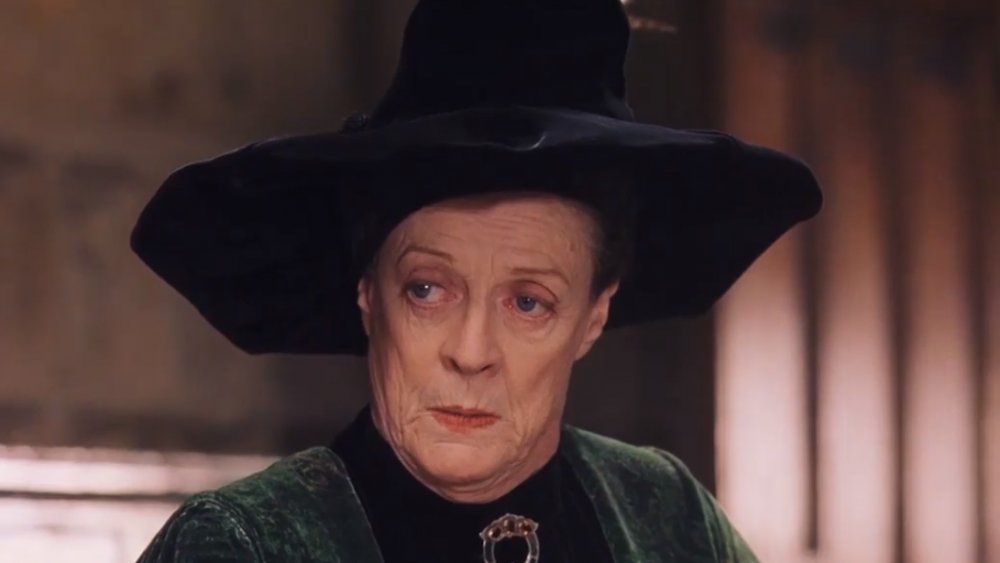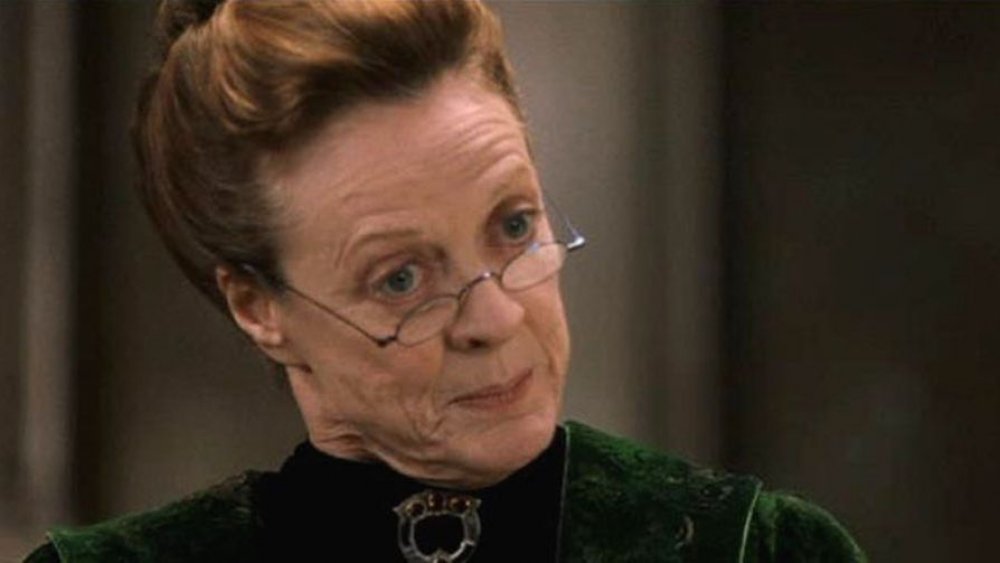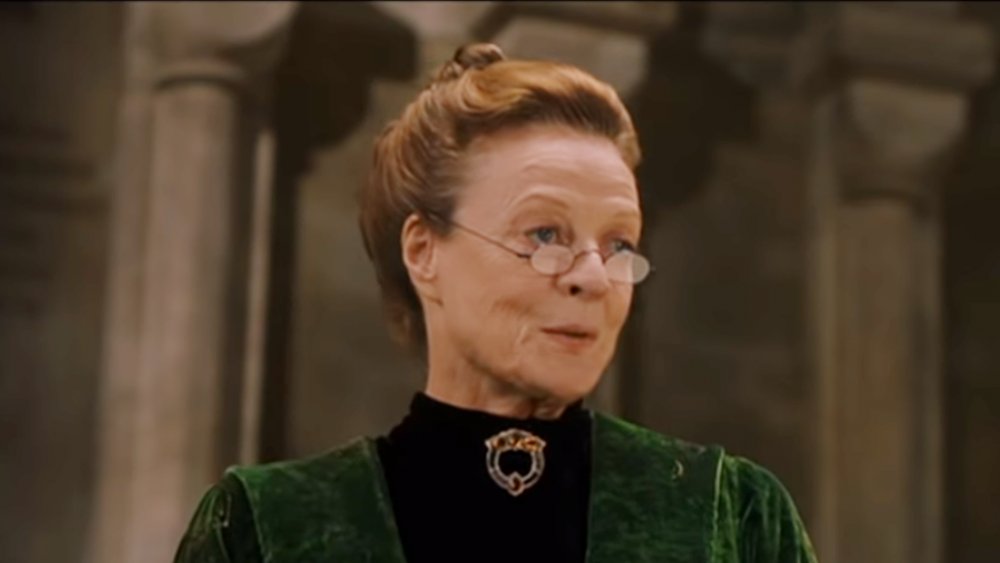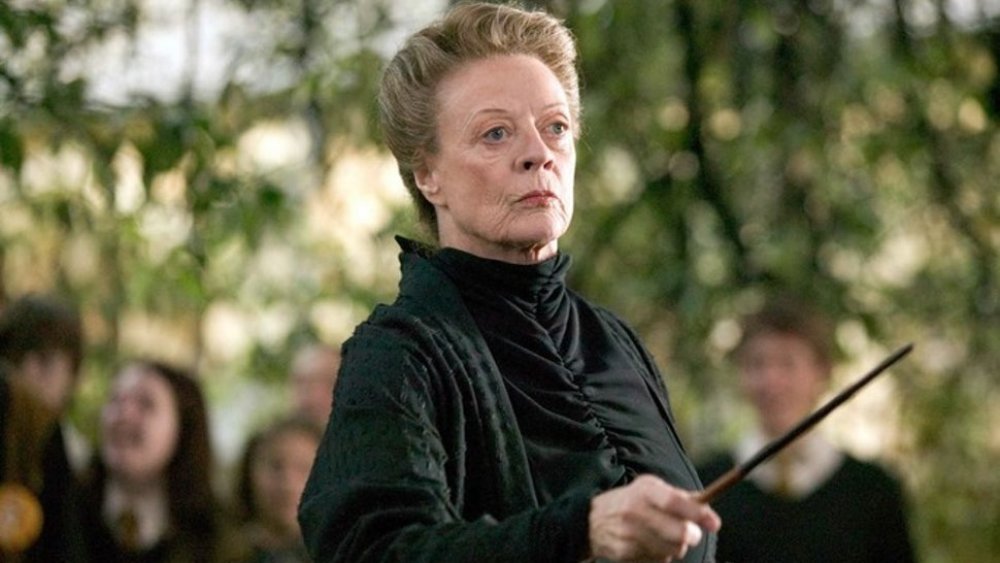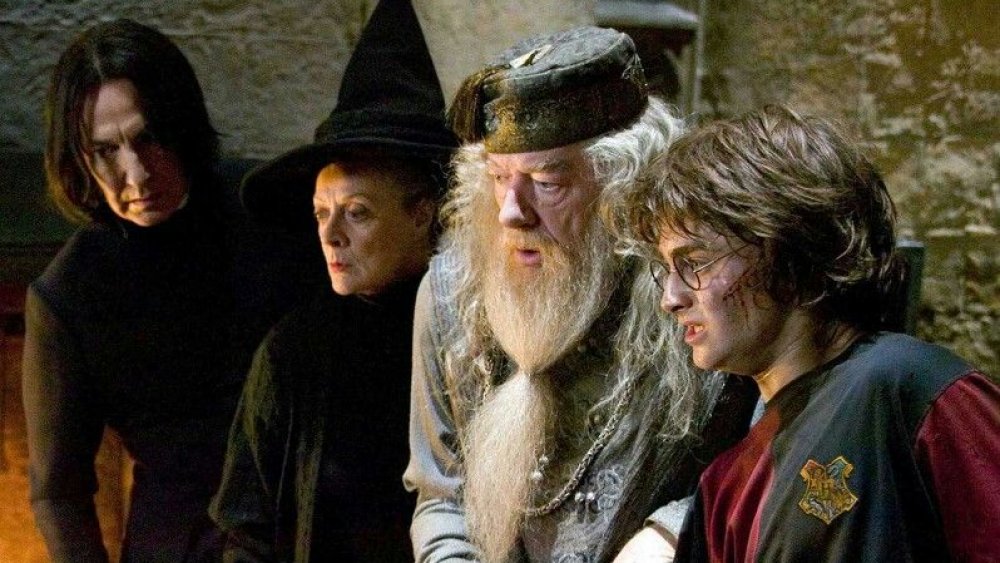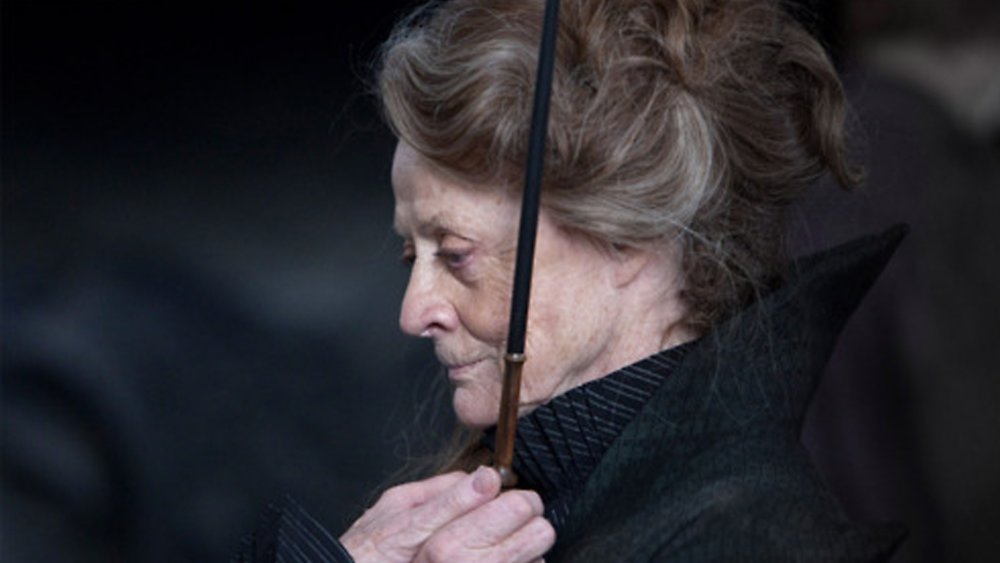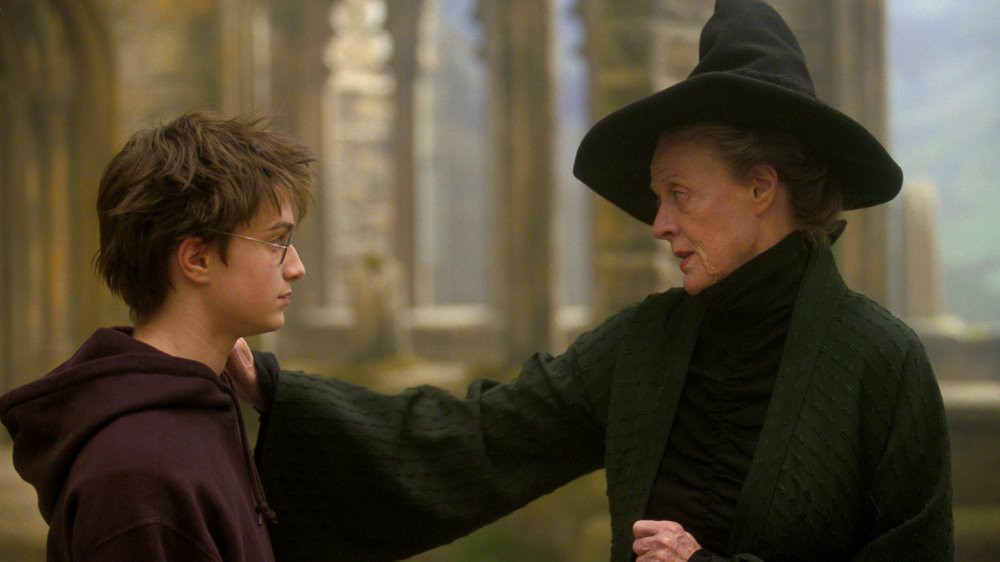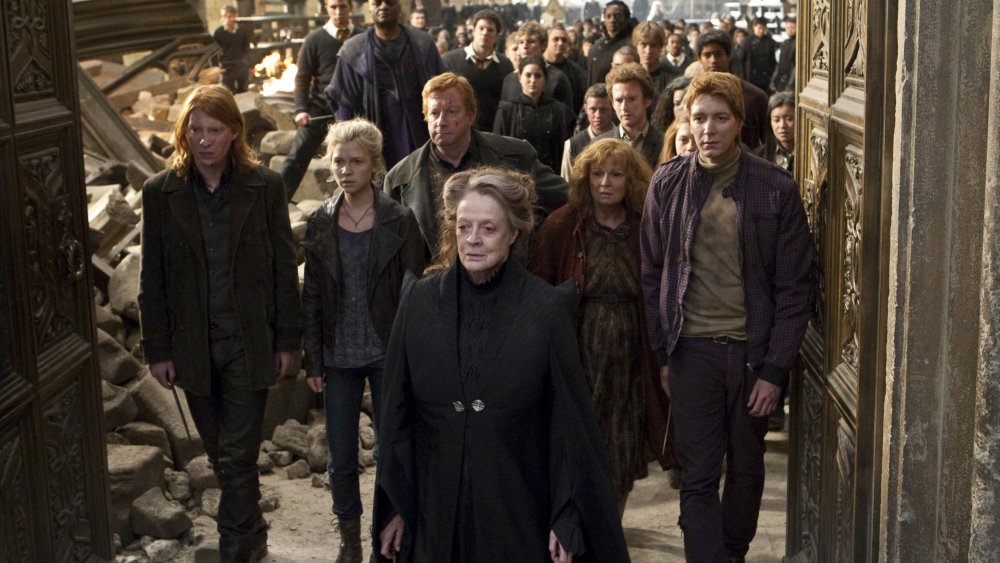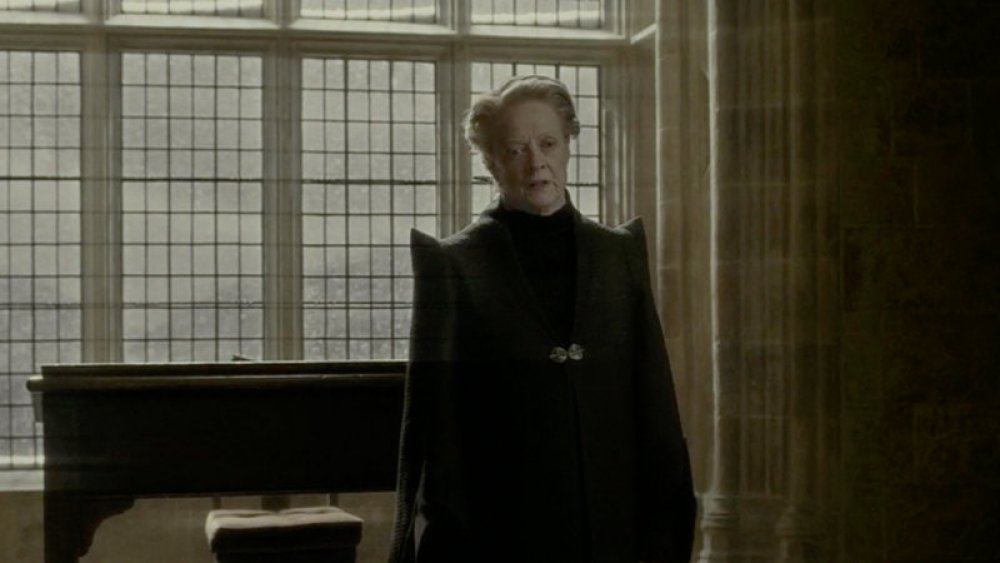Professor McGonagall's Entire Backstory Explained
Since the books hit shelves in the late 1990s and the film franchise kicked off in 2001, the Harry Potter series has become one of the most enduring pop culture phenomena of all time, inspiring generations of kids to pick up a book and transport themselves to a much more magical version of real life. J.K. Rowling's creation brought readers into an incredibly creative world through a complex yet straightforward narrative and a terrific cast of characters, letting children and adults alike escape into a brand new universe throughout the decades since it captured the collective imagination.
Beyond the main trio of Harry, Ron, and Hermione, the wizarding world is populated with a huge cast of characters, each of whom brings something unique to the table. These characters include Harry's professors at Hogwarts School of Witchcraft & Wizardry, and though most people might think Albus Dumbledore was Harry's most influential teacher, don't overlook the legacy of Minerva McGonagall. Played by the indomitable Dame Maggie Smith in the films, McGonagall is a seriously powerful and intelligent witch, but there's a lot you still might not know about Minerva. Here's everything you need to know about Professor McGonagall's entire backstory.
Product of a troubled marriage
Because of the secretive nature of the wizarding world, it's not uncommon that witches and wizards who marry non-magical citizens known as "Muggles" might be less than forthcoming about their real nature — a situation which affected Minerva even before she was born.
In the Highlands of Scotland, two young people — a reverend named Robert McGonagall and a girl named Isobel Ross — fell in love against all odds, but what Robert didn't know is that when the pretty young object of his desire would go away to "boarding school" for months at a time, it was really so she could attend Hogwarts. Against her better judgment and without telling her family, Isobel fell in love with Robert, and the two eloped. After leaving both of their families behind, the couple moved away from their hometown and to Caithness, where Isobel took care of their home, all the while still hiding the fact that she was an extraordinarily talented witch from her kind and caring husband.
Minerva's early abilities cause trouble
Named for Isobel's grandmother — who was herself a particularly talented sorceress — Minerva immediately caused a stir due to her odd name and her mother's apparent postpartum depression, neither of which Robert could explain to curious neighbors and townsfolk. However, Isobel's depression ran deeper than hormones; when Minerva began to show undeniable magical abilities, including a special connection with the family cat and powers over her toys and her father's bagpipes, the undercover witch knew she would have to eventually confess to her husband.
Isobel's confession caused a lifelong rift between the McGonagalls, and though they had two more children — two boys, both of whom were wizards — the trust between them never truly resurfaced. As the oldest McGonagall child and initial cause of the destruction of her parents' relationship, Minerva helped hide the magical abilities of her younger brothers, and though she was close with her parents separately, she always had trouble accepting her magical identity. The tense atmosphere in her home was difficult for her to bear, and when she was accepted into Hogwarts, it came as a relief for everybody in the family, especially Minerva.
A Hogwarts Hatstall
Upon Minerva's arrival at Hogwarts, she immediately revealed one of her most unusual qualities as a witch. As it turned out, young Minerva was a Hatstall, which refers to fledgling witches and wizards who present a very particular challenge to the school's infamously brilliant Sorting Hat.
According to Rowling herself, Hatstalls are students who force the Sorting Hat to spend five minutes or more deliberating over which house they truly belong in; Minerva was only one of two Hatstalls in recent Hogwarts memory, with the other being Peter Pettigrew some while later. For Minerva, the hat debated Gryffindor versus Ravenclaw, ultimately placing her in the former, while Pettigrew also joined Gryffindor House after a protracted argument over whether he should be in Slytherin. Both Hermione Granger and Neville Longbottom very nearly became Hatstalls as well, but ultimately fell short of the five-minute mark — Hermione's Sorting process followed the same argument and outcome as Minerva's, and though Neville asked to be placed in Hufflepuff, the hat eventually won out and assigned him to Gryffindor. Minvera's Hatstall status became relatively infamous, especially since her future coworker Filius Flitwick endured a similar issue but was placed in Ravenclaw, and the two eventually became Heads of their respective Houses.
Lifelong school friends
While at Hogwarts, Minerva made close friends, one of whom ended up becoming one of her future co-workers and another Head of House at Hogwarts, marking a lifelong friendship for the two women.
Pomona Sprout was slightly older than McGonagall, but the two overlapped at Hogwarts by two years, and eventually, the two schoolgirls became close friends. Luckily, the two of them would go on not only to teach at Hogwarts — Professor Sprout would ultimately teach Herbology — but they also worked together as two Heads of House, with Minerva managing Gryffindor and Pomona in charge of Hufflepuff. From steering their students in the right direction to fighting side by side during the Battle of Hogwarts alongside Harry Potter himself, these two powerful and brilliant witches proved that childhood friendships can last a lifetime, and continued to support each other from girlhood to adulthood as they pursued their parallel careers.
Talents and accomplishments
Right from the beginning at Hogwarts, Minerva showed off undeniable talents and an unquenchable thirst for knowledge, making her mark as one of the top students in her class. Naturally, her strongest talent was for Transfiguration — and under the tutelage of her Transfiguration professor Albus Dumbledore, she became an Animagus, able to turn into a tabby cat with very specific spectacle markings around its eyes at will — but she also earned plenty of other titles at school as well.
As well as becoming a Prefect and Head Girl, Minerva also earned top marks in the O.W.L. and N.E.W.T. tests and was named Most Promising Newcomer by Transfiguration Today. Beyond that, she inherited her mother Isobel's natural gifts on the Quidditch pitch, although a serious accident during a game against Slytherin in her last year at Hogwarts left her unable to play again. However, that does explain why Minerva took such a shrewd interest in the Gryffindor team as the Head of House, recruiting a young and obviously talented Harry to play as Seeker and becoming extremely invested in whether her team reigned supreme at the end of each school year.
A doomed love
Unfortunately for Minerva, her life immediately after Hogwarts took an unexpected and sad turn when it came to her romantic prospects. Despite a lucrative job offer from the Ministry of Magic in the Department of Magical Law Enforcement, Minerva fell hard for a local Muggle boy near her hometown, which got in the way of her big plans in a big way.
Dougal McGregor, the son of a nearby farmer, captured Minerva's heart, thanks to a sharp shared sense of humor, a love for debate, and a seriously intense mutual attraction. The two fell in love hard and fast, and after only a short while, Dougal proposed and Minerva accepted.
However, after some thought, Minerva realized that she would be putting Dougal in her father's unfortunate situation — he didn't know she was a witch — she also knew that he would rather stay home and work on his family farm than tag along to London while she worked at some mysterious job. Though it broke her heart, she never told her family about the short-lived engagement and instead told Dougal she had changed her mind and wouldn't marry him, unable to tell him the truth due to the wizarding world's strict International Statute of Secrecy. Tragically, Minerva's first love was her most intense, but it couldn't go anywhere.
Minerva's time at the Ministry
After leaving Dougal behind, Minerva was understandably heartbroken, but in the end, she had a new job to distract her and start her career. Despite the fact that she had just left real love behind, Minerva arrived in London determined to begin her career, but in an upsetting twist, her time at the Ministry may not have been worth the difficult sacrifice she made in leaving Dougal.
As it turned out, the Department of Magical Law Enforcement wasn't the dream job that Minerva imagined. Many of her coworkers were firmly anti-Muggle, which disturbed Minerva (whose father was a Muggle, and she had just fallen in love with one as well), and though she enjoyed the company of her boss Elphinstone Urquart, she didn't like London and was homesick and depressed at work. In the end, she created her own opportunities; after she sent an owl to Hogwarts to see if there were any jobs available, Albus Dumbledore responded with haste and offered her a job in the Transfiguration department — for which he served as the Head — which Minerva happily accepted.
Home at Hogwarts
Back at Hogwarts, Minerva thrived, teaching her favorite subject, Transfiguration, to hordes of incoming students. This, obviously, is the role that Harry Potter fans know and love; though Minerva was a strict professor, she was also effective, and would let her walls down for the right students.
Throughout her career, Minerva was a solid disciplinarian but always welcoming and helpful to her students, often standing up for them in the face of adversity — after all, who could forget the time she stuck up for Harry against the meddling Dolores Umbridge during his fifth year career advice session? A shrewd yet caring teacher, Minerva showed off her extraordinary talent and uncommon magical abilities to generations of students, making it clear that Dumbledore was right to hire her; after he was promoted to Headmaster, he installed her as the Head of the Transfiguration Department, letting her earn her rightful place at Hogwarts.
Lonely hearts club
As it turned out, Dumbledore and Minerva had much more in common than she ever could have anticipated. Many readers know, in the aftermath of the Potter books, that Dumbledore was actually in love with Gellert Grindelwald, the dark wizard who was his friend as a teenager. In the end, Dumbledore and Grindelwald faced off during the first Wizarding War, and Dumbledore defeated him, breaking his own heart in the process. For that reason, when Minerva found out that Dougal — whose letters she saved for years — had married a farm girl in her hometown, she turned to Dumbledore to help soothe her freshly broken heart.
After finding Minerva distraught after hours, Dumbledore proved a great source of comfort for the heartbroken witch, confiding in her about his family tragedy and his own lost love. From then on, the two shared an extremely close yet platonic friendship, based on mutual respect and total confidence between them, which lasted until Dumbledore's death during Harry Potter's sixth year at school.
A happy marriage cut short
Ultimately, Minerva did find a stable and comforting love. Throughout her career at Hogwarts, Minerva always stayed in touch with her former Ministry boss, Elphinstone Urquart, a kind yet much older wizard. Though Elphinstone proposed to Minerva early in their half-baked courtship, she said no (because of her lingering feelings for Dougal), but the determined wizard kept trying, and eventually, after Dougal died unexpectedly, Minerva found that her conscience was clear to accept one of Elphinstone's many proposals.
The two shared an entirely happy marriage; now that Elphinstone had retired from the Ministry, he purchased a small cottage near Hogwarts, so that Minerva would be close to her job. Minerva kept her last name of McGonagall (which drew derision from people wondering why she would keep a Muggle name), but the two extraordinarily intelligent wizards were equals in every way, and though they never had any children, they frequently hosted Minerva's nieces and nephews at their home and their union was extremely harmonious. However, the marriage met a tragic end — after only three years of wedded bliss, Elphinstone was bitten by a Venomous Tentacula and died from his injuries. Unable to be alone with her grief, Minerva left the couple's marital home and moved back to Hogwarts, smarting over yet another lost love. Though she still counted Albus Dumbledore as her confidant, she rarely talked about losing Elphinstone, and focused entirely on her work.
What's in a name?
J.K. Rowling is always extremely precise when it comes to names — Dumbledore is derived from an Old English word which means "bumblebee," for example — and Minerva McGonagall is no exception. It should come as no surprise that her first name, Minerva, comes from the Roman goddess of war, art, and wisdom, among other things, whose Greek counterpart is Athena. Born wearing armor, the goddess Minerva was the product of a violent dispute between her parents Metis and Jupiter, and was always a source of strength and wisdom, often accompanied by her signature owl.
However, her last name has a much more whimsical and cheeky origin. According to Rowling's own Wizarding World database, the name McGonagall is after William McGonagall, widely regarded as "the worst poet in British history." As Rowling says, "there was something irresistible to me about his name, and the idea that such a brilliant woman might be a distant relative of the buffoonish McGonagall."
A lifelong fighter
Throughout the Harry Potter series, McGonagall spent the majority of her time serving as the Transfiguration professor at Hogwarts and leading Gryffindor House to victory for both the House Cup and the Quidditch finals. However, her prodigious talent as a witch was always there, and when Voldemort attacked Hogwarts during what would have been Harry's final year at Hogwarts, Minerva fought on the front lines alongside her students and coworkers.
After doing her best to protect her students from insidious forces within Hogwarts itself — including the detestable Carrow siblings, whom Voldemort installed as professors and who both enjoyed torturing students — Minerva joined Harry in fighting Voldemort himself, showing off her extraordinary dueling powers as well as leading the castle itself in a fight against ultimate evil. As well as providing a fierce resistance against Voldemort and his Death Eaters, her scream at Harry's apparent dead body (which, still conscious, he hears) provides one of the strongest emotional beats within the series' final installment, Deathly Hallows. However, when Harry reigns triumphant, Minerva is still among the living, ready to enjoy a world free of Voldemort.
Post-Voldemort peace
In the aftermath of the Second Wizarding War, Minerva assumed her rightful post as Headmistress of Hogwarts, a role that fell to her automatically after Dumbledore's death (realizing she was the rightful successor as Deputy Headmistress, Dumbledore's office opened itself to her without question right after he fell). As Headmistress, McGonagall had to undo the damage Voldemort had inflicted upon the school, and made positive changes, including appointing her former student Neville Longbottom as a Herbology professor and, eventually, the new head of Gryffindor House.
Placing a great emphasis on the union of Muggleborn students as well as purebloods, McGonagall event went so far as to have Rubeus Hagrid serve as an ambassador for all Muggleborns who had no knowledge of Hogwarts, and made sure that Hogwarts was an equal and fair place where all students could learn and thrive. She also was awarded several honors after serving in the Battle at Hogwarts, though her Order of Merlin (First Class) was hugely overshadowed by the fact that she ultimately earned her own Chocolate Frog Card.
